Westpac, ANZ bank bosses tip rate cut for February 2025
Two out of the four chief executives of Australia’s major banks have tipped an early-2025 cash rate cut.
Business Breaking News
Don't miss out on the headlines from Business Breaking News. Followed categories will be added to My News.
Two out of four major banks believe the Reserve Bank will begin cutting rates early next year, bringing relief to households struggling with a 13-year high cash rate of 4.35 per cent.
ANZ chief executive Shayne Elliott says the bank is expecting the RBA to reduce the cash rate by a total of 75 basis points, with the first cut set for February.
“Lower interest rates will be welcome relief for borrowers who have faced high debt costs for some time, although savers will face lower returns,” he told a parliamentary review into Australia’s big four banks on Friday.
“But we’re very conscious of the pressure that high higher debt costs have placed on many of our customers, who are also managing bigger bills for everyday essentials.”
His comments matched Westpac chief Peter King, who told the committee he was tipping rates to ease from February and settle in the low 3 per cent range.
Mr King said on Thursday he believed the cash rate would be eased by a total of 100 basis points.
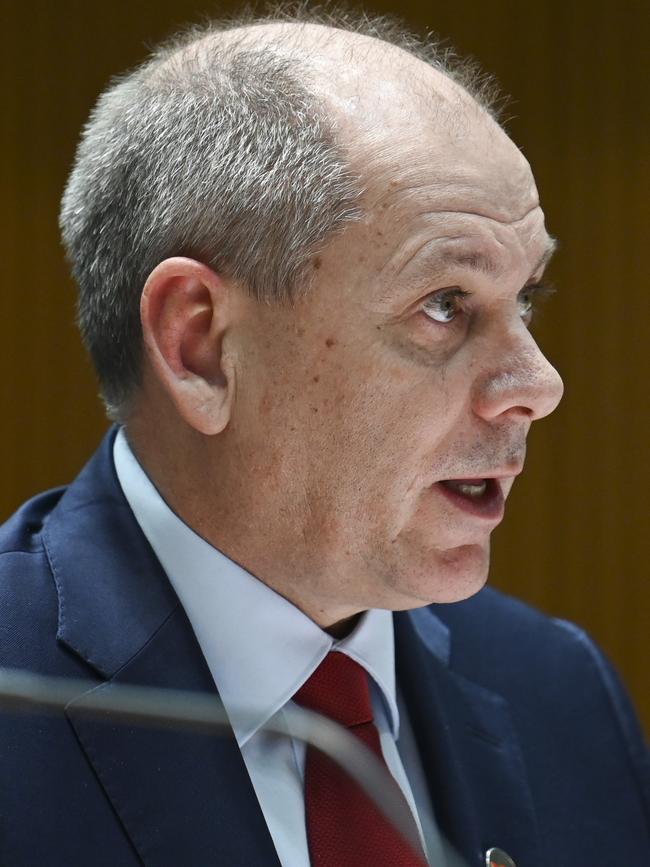
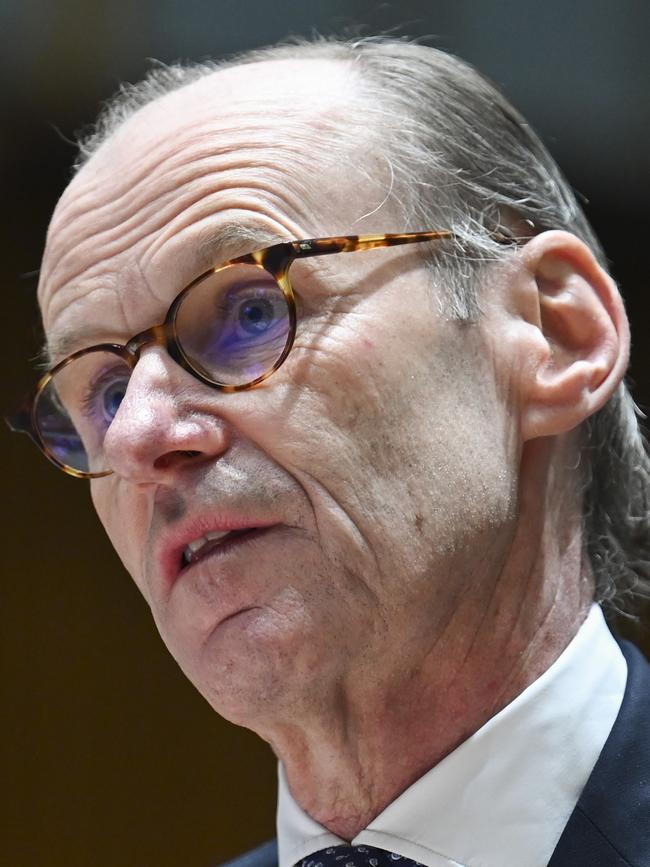
However, NAB chief executive Andrew Irvine said he expected households would have to weather another six to nine months of hard times before rates eventually ease.
“That will provide more money in the economy, more demand in the economy, which will mean that businesses will be healthier, and therefore they’ll be able to hire more, pay more and more.”
“I do feel like we’re getting to a point where interest rates will start to come down,” he added.
Mr Irvine also noted banks were “no longer the best barometer … of how society is handling this cost of living crisis” because of lending standards.
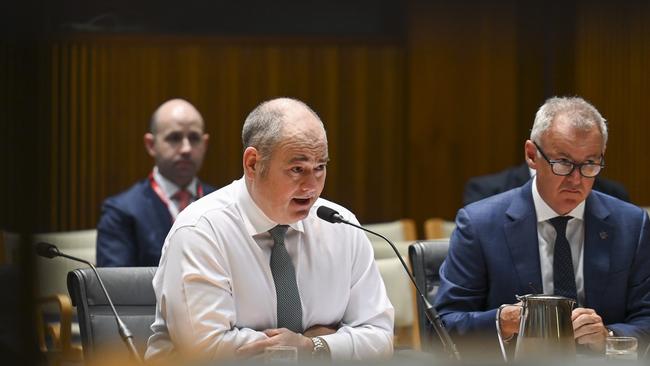
“We probably don’t see the people in our lending books that are most vulnerable,” he said, adding that that was why there was “a little bit of a disconnect between” money owed on NAB’s balance sheet and “we’re hearing and seeing from our customers all around the economy today.”
MIDDLE AUSTRALIA ‘LOCKED OUT’
Speaking about access to credit, Mr Elliott said strengthened limitations, regulations, guidelines and standards, which while necessary, have also made it considerably difficult for average Australians to access home loans.
He said while they have made banks safer, action needs to be taken to ensure a more equitable access to money.
“Strong access to credit is becoming the preserve of the wealthy, and therefore Middle Australia’s being locked out, being underbanked, under insured, under advised,” he told the committee.
“We need to do something about that.”
Mr Elliott conceded some of the regulatory issues laid with big banks, but called for more debate on the issue.
“Some of it’s to do with regulation, and I can’t point to any particular regulation … I think it’s a collective, build up over time and a lot of it is to do with us.”
ANZ BOSS ADDRESSES ASIC STING
Mr Elliott was also grilled over the ongoing investigation by the Australian Securities and Investments Commission (ASIC) over allegations of misconduct over the issuance of a $14bn 10-year Treasury Bond in 2023.
He revealed three traders have been left the bank following the allegations.
One of the staff was dismissed, while the remaining two Sydney-based traders left under a “mutual separation”.
They were not paid out their granted equity and left without bonuses.
Another person has also been given a “formal warning” relating to their “individual behaviour,” with Mr Elliott stressing it had nothing to do with “trading”.
“This is about the profanity in the dealing room, use of alcohol during work hours, etc. Those issues are being dealt with,” he said.
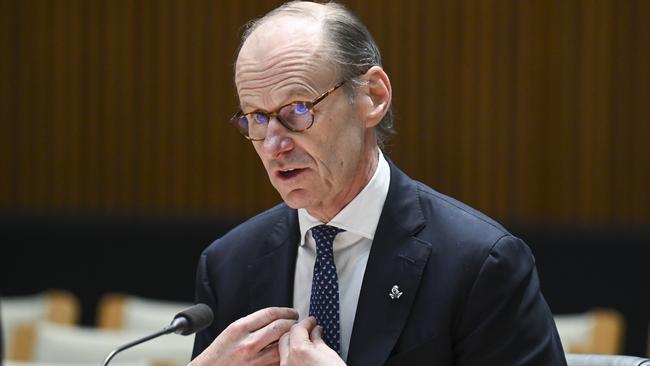
He said as it stands “there is no evidence” this “may have cost taxpayers,” however acknowledged he didn’t have all the information that may be possessed by the regulator.
Instead, he said the bank’s investigations suggested the concerns of incorrect data reporting was not “deliberate”.
“They obviously have their suspicions and reasons why they want to investigate, but they’ve not put an allegation to us with any detail,” he told the committee.
“We issued a press statement recently that confirmed that based on what I’ve seen, we still at this date, have seen nothing to suggest there was any misconduct or anything improper from ANZ.”
Mr Elliott said the bank had suffered significant “reputational damage” and was treating the investigation seriously.
He said ANZ had also undertaken a wide-ranging audit of data reports provided to federal and state governments, with no other errors detected.
“There’s no doubt that reputational damage will impact the assessment of some, if not many, but we’re only at the beginning of that, and those things will be determined over the coming two months,” he said.
‘TWO AUSTRALIAS’: BIG BANK BOSS’ CLAIM
Earlier on Friday, Mr Irvine said difficult economic conditions have created “two Australias”, with some “doing it much tougher” as the country faces rising costs of living.
Mr Irvine said Australia’s most populous states were being hit hardest.
He said while his bank was “optimistic” about the economy down the track, the “reality today is more challenging” and the country was operating “a two-speed economy at present”.
“Customers in certain sectors and certain geographies are doing well and are ambitious to grow,” Mr Irvine said.
“These include mining and resources businesses and consumers living and working in parts of Western Australia, the Northern Territory and Queensland.”
He said the picture was not so rosy for other states and sectors of the economy, pointing to struggling retailers and patchy performance in the construction industry.
“Victoria and NSW are under more pressure than other states,” he said, tallying with Reserve Bank findings.
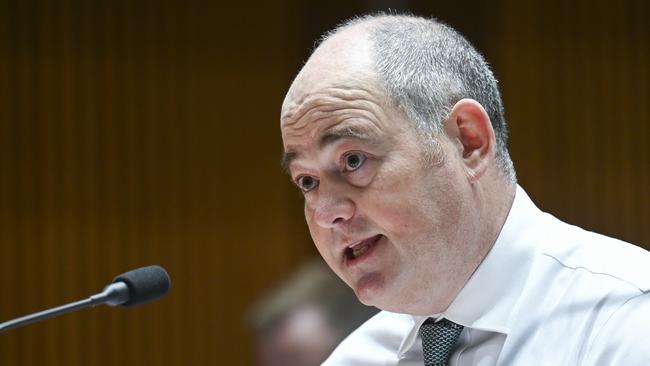
“Our data shows people are having to make tough decisions about where they spend their money.
“They are getting by, but it is tough. Not unexpectedly, we saw some asset deterioration in our balance sheet in our most recent quarter.”
Non-profits have warned that Australians are increasingly struggling to manage basic costs, with Foodbank reporting 3.7 million households, or about 36 per cent of Australian households, faced varying degrees of food insecurity in 2023.
Some 23 per cent were experiencing severe situations, Foodbank said.
Mr Irvine said NAB customer insights showed “cost-of-living pressures are causing the greatest stress, with one in three Australians reporting very high stress related to cost of living”.
“Our message to customers always is that if you are in difficulty, please call us, and call us early,” he said.
NAB HAEMORRHAGING ‘BEST BANKERS’
Mr Irvine said NAB had to scrap bonus caps on mortgage bankers to stop his “best bankers” defecting to the Commonwealth Bank.
CBA hiked bonus caps from 50 per cent to 80 per cent in April, much to the disapproval of regulator ASIC, which has warned it could ultimately harm customers. Westpac followed suit in June.
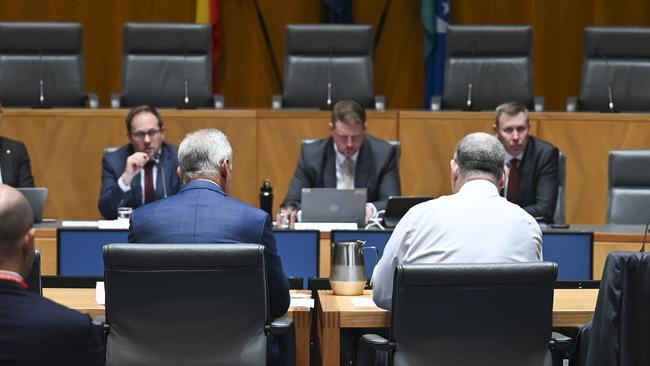
Mr Irvine said he had lost five home lenders to CBA in August, all of whom cited better pay at the competitor as their reason for leaving.
“Candidly, we made the decision to move reluctantly. It was not our, or my, preference to do so,” the NAB boss said.
“I won’t be able to serve customers well if I lose my best bankers.”
But he said his bank had “incredibly strong guardrails” to avoid past mistakes.
The caps were recommended by the banking royal commission, which exposed severe malpractice across Australia’s biggest financial institutions.
Originally published as Westpac, ANZ bank bosses tip rate cut for February 2025




